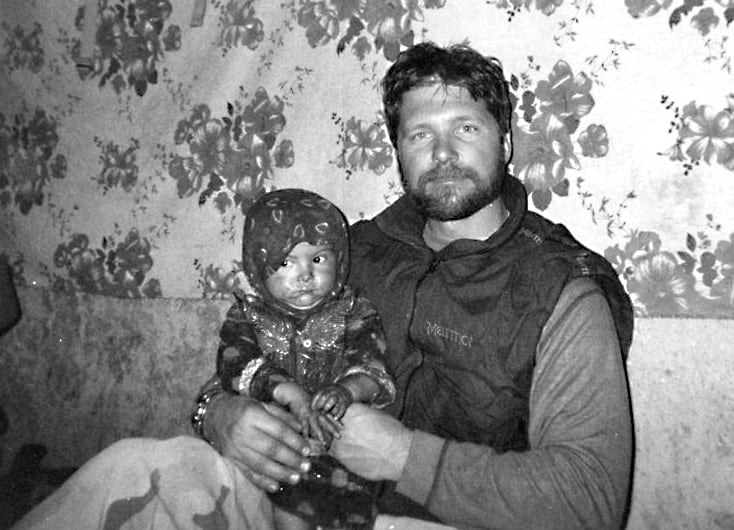Video excerpts of the heroic last stand of Technical Sgt. John Chapman, the combat controller who is to posthumously receive the Medal of Honor for his bravery during a fierce battle in Afghanistan in 2002, was released Thursday by the Pentagon.
The Air Force posted online a minute and a half of clips from the feed of a Predator drone that flew over the Takur Ghar mountaintop on March 4, 2002, during the Battle of Roberts Ridge.
President Trump will posthumously present the award to Chapman during an Aug. 22 White House ceremony attended by Chapman’s wife and family. He will become the 19th airman to receive a Medal of Honor, the nation’s highest award for valor, since the Air Force was created in 1947, and the first to receive it for actions taken since the Vietnam War.
This Predator video played a key role in the military’s decision to upgrade Chapman’s award from an Air Force Cross to the Medal of Honor. The New York Times in 2016 reported that former Air Force Secretary Deborah Lee James had recommended the upgrade, in part relying on newly enhanced video from the Predator to argue that he was not killed when originally believed, but was instead wounded and knocked unconscious. The Air Force believed the video showed Chapman later regained consciousness and continued fighting until he was killed by two machine gun bullets to the chest.

The video begins at 4:27 a.m. local time, showing a Chinook helicopter, RAZOR 04, inserting the team of Chapman and Navy SEALS to try to rescue their teammate, Petty Officer 1st Class Neil Roberts. The Pentagon has overlaid a green circle showing which figure is believed to be Chapman throughout the battle.
According to the Pentagon’s description, the video shows Chapman running up a steep mountain slope to engage al Qaida fighters dug into two bunkers. He charges into an occupied bunker, and soon afterwards moves from cover to attack a second enemy machine gun firing on the SEALS. The video’s subtitles say that is when he was wounded and knocked unconscious.
The video then skips forward 70 minutes to 5:41 a.m., when Chapman is believed to have regained consciousness and resumed fighting. Chapman exposed himself to provide covering fire for a Chinook carrying a team of Army Rangers, known as Razor 1, and engaged al Qaida fighters who hit the Chinook with an RPG. That is when he was killed, according to the video.
The RPG explosion can be seen in the video, as can muzzle flashes from a zoomed-in portion focusing on Chapman after he is believed to have regained consciousness.
The question of when Chapman died is a point of controversy. The SEALS — including retired Master Chief Britt Slabinski, who in May received the Medal of Honor for his actions during the same battle — believed Chapman was dead when they withdrew from the battlefield under withering fire.
But the Air Force maintained the video showed he regained consciousness and resumed fighting al Qaida members who were coming toward him from three directions, the Times reported in 2016. Earlier this year, Newsweek reported that Chapman’s autopsy showed he sustained bruises to his hands, neck and face, which the service believed showed he killed militants in hand-to-hand combat in the bunker.
And Newsweek reported that when Chapman’s body and gear were recovered, he had emptied six 30-round magazines before being killed. That would not have been possible if he had died within the first few minutes of the battle, as originally believed.
Stephen Losey is the air warfare reporter for Defense News. He previously covered leadership and personnel issues at Air Force Times, and the Pentagon, special operations and air warfare at Military.com. He has traveled to the Middle East to cover U.S. Air Force operations.



